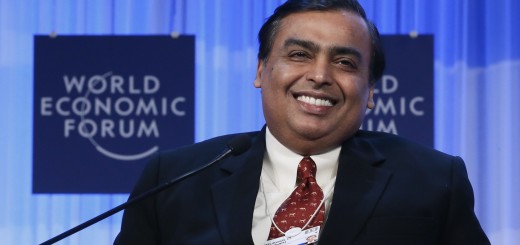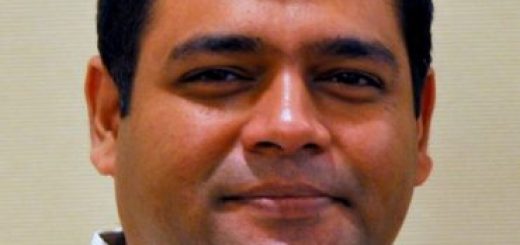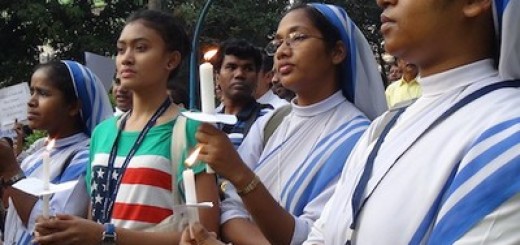Do justice to India’s gays, scrap 377
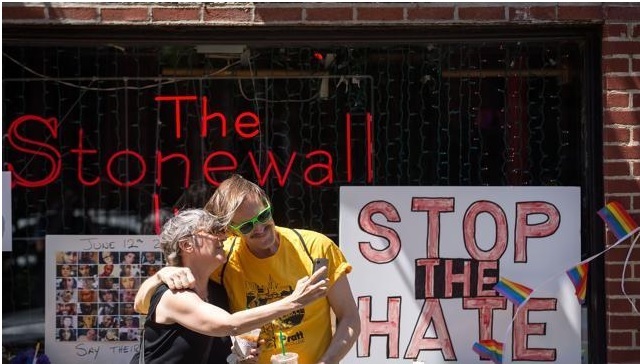
Rainbow of hope?
Will India vote for an
LGBT resolution at UN?
Arvind Narrain, in Hindustan Times, Jun 28, 2016
(Note: Yes the Gays, homosexuals, or same-sex people, were on the margins of society for centuries, especially in religious circles: in Catholic Church, in Islam and in many other religions. Country wise great discrimination and hostility still persists in African and in Islamic countries like Saudi Arabia, Turkey, Pakistan, Russia and China. But slowly the LGBT community began capturing sympathy and support of people both in religious and social circles. Various states in US started legalizing gay unions which later was endorsed by federal court. Ireland which was once said to be more catholic than the Pope en block as a country voted for gay unions. India has been taking one step forward decriminalizing and then another backward criminalizing. Now there is again a hue and cry to get the criminalizing section 377 of the penal code scrapped. Besides for the first time in history UN is to move a resolution brought by six Latin American Countries to be voted on June 29th to declare LGBT life style as part of Right to Life. Will India vote saying:Yes?
Catholic Church started debating gay rights in earnest in the two family synods in Rome in 2014-2015. Shedding negative attitude to gays has been very slow, but of late, just two days ago Pope Francis has come out strongly with a most positive forceful instruction bordering on command, urging Roman Catholics to ask pardon to LGBT sections for the past injustices they have done to them. Now it looks that Francis is ahead of all in religious and political circles in defending the cause of gay people in society. But way behind is India as a nation, still dillydallying with Section 377 of the Indian Penal Code, which, criminalizes LGBT lives. Among Indian political parties BJP happens to be most opposed to repealing section 377. What is more ill-foreboding or menacing is the calculated, deliberate silence of Modi, the orator par excellence on national and international stages, on attacks on gay people, even on Orlando massacre!
Not much different is the attitude of the Indian Catholic bishops either. Except for Cardinal Osward Gracias of Bombay no other Indian bishop has come out speaking publicly in defense of LGBT. Even the Orlando massacre of lGBT has not elicited any reaction from any of them. The 180 strong CBCI has not uttered one word condemning it. Why, it has not condemned even the Caste-craze driven kidnap and attack (on last April 25) of Bishop Gallela of Cuddappah to this day. That is how backward looking and antediluvian are our political and Catholic circles in India. We therefore have to go on inventing new working strategies until we succeed to help them see reality and move with the times. james kottoor, editor)
In a little over a decade, Lesbian Gay Bisexual Transgender (LGBT) issues have moved from the margins to the centre of national debates. Support for the repeal of Section 377 ranges from the Left to the Congress. But the BJP’s response has been confused at best and homophobic at worst.
The one voice that can clarify this confusion chooses to be silent. Each time there has been a need for the prime minister to break his silence and assure LGBT Indians of full moral citizenship, Narendra Modi has declined to speak.
The latest instance of the BJP’s deafening silence is its stand on the tragedy in Orlando, where the prime minister saw fit to commiserate with the victims without acknowledging that the shootings were in a gay club and the killer intentionally targeted the LGBT community.
The Supreme Court will on Wednesday hear a petition seeking quashing of Section 377 of the Indian Penal Code to protect the sexual preferences of the LGBT community, says a media report. The petition, moved by chef Ritu Dalmia, hotelier Aman Nath and dancer NS Johar among others, says the sexual preferences of the community are part and parcel of the right to life, according to Times of India.
In 2009, the Delhi high court ruled that Section 377, which prohibits “carnal intercourse against the order of nature with any man, woman or animal”, was unconstitutional. The verdict was challenged in the Supreme Court which, on December 11, 2013, overturned the high court ruling. On January 28, 2014, the SC dismissed petitions seeking a review of its decision.
A commiseration without a willingness to deal with the factors that caused the tragedy in Orlaando lacks authenticity. A meaningful response would have acknowledged that the shootings were an attack on LGBT people and followed it up with a commitment to combat violence and discrimination against LGBT people in all spheres. Such a response can work at two levels: The national and international. In India, the government must move to repeal Section 377 of the Indian Penal Code, which, criminalises LGBT lives.
At the international level, there is a new opportunity in front of India to affirm its commitment to tackle violence and discrimination on the grounds of sexual orientation and gender identity.
On Thursday, India will vote on a resolution at the United Nations that seeks to establish an independent expert on sexual orientation and gender identity at the human rights council.The resolution moved in June by six Latin American countries (Brazil, Argentina, Mexico, Chile, Uruguay and Colombia) and — for the first time in UN history — seeks to focus dedicated and systematic attention to the violence and discrimination faced by LGBT persons.
It will focus global attention on forms of human rights violation ignored for too long. It is a long overdue recognition of the fact that LGBT people are human beings and that the violence and discrimination inflicted on them worldwide must be addressed.
President Barack Obama on Friday designated the site of a watershed event in the history of US gay rights, the 1969 Stonewall riots in New York City, as a national monument, the first to honour the contributions of gay Americans.
The Stonewall Inn gay bar in Manhattan’s Greenwich Village was the scene of a police raid that triggered riots and ignited a long struggle to bring lesbian, gay, bisexual and transgender people into the American mainstream and guarantee their rights. “Welcome to the family,” the National Park Service said in a tweet welcoming its 412th site.
The move was the latest of several steps Obama has taken on gay rights during his presidency. In 2010, he signed a law repealing a policy that had banned gays from serving openly in the U.S. military. In 2012, he became the first president to support gay marriage, a stance he has admitted took time to evolve. His administration also supported the legal challenge that led to the 2015 U.S. Supreme Court ruling legalizing gay marriage nationwide.
“There is important distance yet to travel, but through political engagement and litigation, as well as individual acts of courage and acceptance, this movement has made tremendous progress toward securing equal rights and equal dignity,” Obama said in a proclamation officially designating the historic site.
As a member of the UN human rights council, India is significantly placed to contribute to this historic moment. But how exactly will India vote on this resolution? The Modi government’s record on LGBT issues is not a happy one.
India has either abstained or voted against LGBT rights at the international level. In September 2014, less than four months after Modi came to power, India abstained on a resolution on sexual orientation and gender identity at the council.
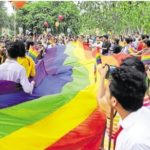 This record doesn’t inspire much hope of a positive vote for the LGBT community. But there are good reasons why joining the opposition to LGBT rights and voting against the establishment of an independent expert would be wrong, both in legal and constitutional terms.
This record doesn’t inspire much hope of a positive vote for the LGBT community. But there are good reasons why joining the opposition to LGBT rights and voting against the establishment of an independent expert would be wrong, both in legal and constitutional terms.
In March 2015, India joined Russia, Pakistan, Saudi Arabia, China and Iran in voting against the extension of benefits available to heterosexual couples to same-sex couples in the UN general assembly.
The judgment by the Supreme Court in NALSA v Union of India acknowledges that transgender people have been treated shamefully and guarantees them the right to equality, expression and life.
This record doesn’t inspire much hope of a positive vote for the LGBT community. But there are good reasons why joining the opposition to LGBT rights and voting against the establishment of an independent expert would be wrong, both in legal and constitutional terms.
The judgment by the Supreme Court in NALSA v Union of India acknowledges that transgender people have been treated shamefully and guarantees them the right to equality, expression and life.
The fact that the Supreme Court has decided to refer the Koushal judgment, upholding Section 377, to a five-judge bench earlier this year indicates that a rethinking on the British-era law is underway.
The question the government should consider is whether it wants to acknowledge LGBT people as full citizens or go along with a homophobic dismissal of the concerns of LGBT people as simply not worthy of the attention of the UN.
India could vote against the resolution and join notorious global actors in opposing LGBT rights such as Russia, Saudi Arabia and Egypt or vote for the resolution in accordance with the constitutional obligation of ensuring equal rights for all.
It is also likely that a procedural manoeuvre calling for no action on this resolution will be moved by states opposed to the resolution. A no-action motion is akin to saying the rights of LGBT people are so controversial that they should not even be discussed at the UN level.
If India votes for the no-action motion, it proclaims on the international stage that the violence and discrimination faced by LGBT people is a non-issue.
Either of these votes by India will be watched closely as they will be a fair indicator of how this government views its LGBT citizens and whether it believes that LGBT persons are human beings entitled to full rights under the Universal Declaration of Human Rights.
Arvind Narrain is an LGBT rights activist and a human rights lawyer.
************************************

